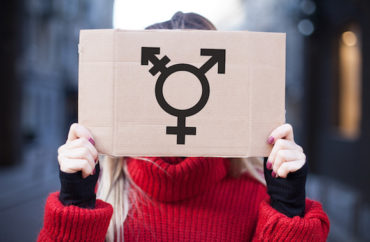
‘Restricted abortion access for women’ doesn’t take into account others who need the procedure
The U.S. Supreme Court’s Dobbs decision, which overturned Roe v. Wade and is now four months old, is still reverberating around college campuses.
At the University of North Carolina, transgender and “nonbinary” students are concerned about how the ruling will affect them.
According to The Daily Tar Heel, the state of North Carolina instituted a ban on abortions after 20 weeks following Dobbs, leaving “some trans and nonbinary individuals in the state fear the repercussions of stricter restrictions.”
One “transmasculine” student told the DTH they were in a state of “panic” after Dobbs because “many people ignore the repercussions that abortion bans have on trans and nonbinary people who can get pregnant.”
A UNC-Wilmington transgender student noted abortion providers “often offer services that cater to cisgender women” saying “It’s so hard to access those spaces if you are not a woman and not perceived that way by people. I think it definitely is ostracizing trans and nonbinary people a lot more.”
A “nonbinary” student added that “the most immediate change” needed in the abortion rights battle is inclusionary language. Talking about “restricted abortion access for women” doesn’t take into account others who may need the procedure, they said.
[The ‘nonbinary” student] said that using exclusionary language can be hurtful and a lack of representation can be dangerous. Hamilton noted that restrictions on abortion could harm trans and nonbinary people’s mental health, as the stress caused by these restrictions adds to the stress that many trans and nonbinary people already experience. …
[They] said education is one of the keys to helping trans and nonbinary people feel more included and supported. Talking to trans and nonbinary individuals about their experiences, volunteering and writing to government officials along with voting are essential ways to influence change, they added.
They also said that simply being there for trans and nonbinary friends may seem like a small action, but can make a big impact in their lives.
The “state of fear” and concerns about language notwithstanding, polls have shown that almost two-thirds of women favor limiting abortions to the first 20 weeks of pregnancy. Also of note, many other First World countries restrict the procedure prior to 20 weeks.
MORE: No proof students are leaving red state colleges because of pro-life laws
MORE: Yale activists demand free abortion, hormone therapy on Kavanaugh confirmation anniversary
IMAGE: Andrii Zastrozhnov / Shutterstock.com





Please join the conversation about our stories on Facebook, Twitter, Instagram, Reddit, MeWe, Rumble, Gab, Minds and Gettr.